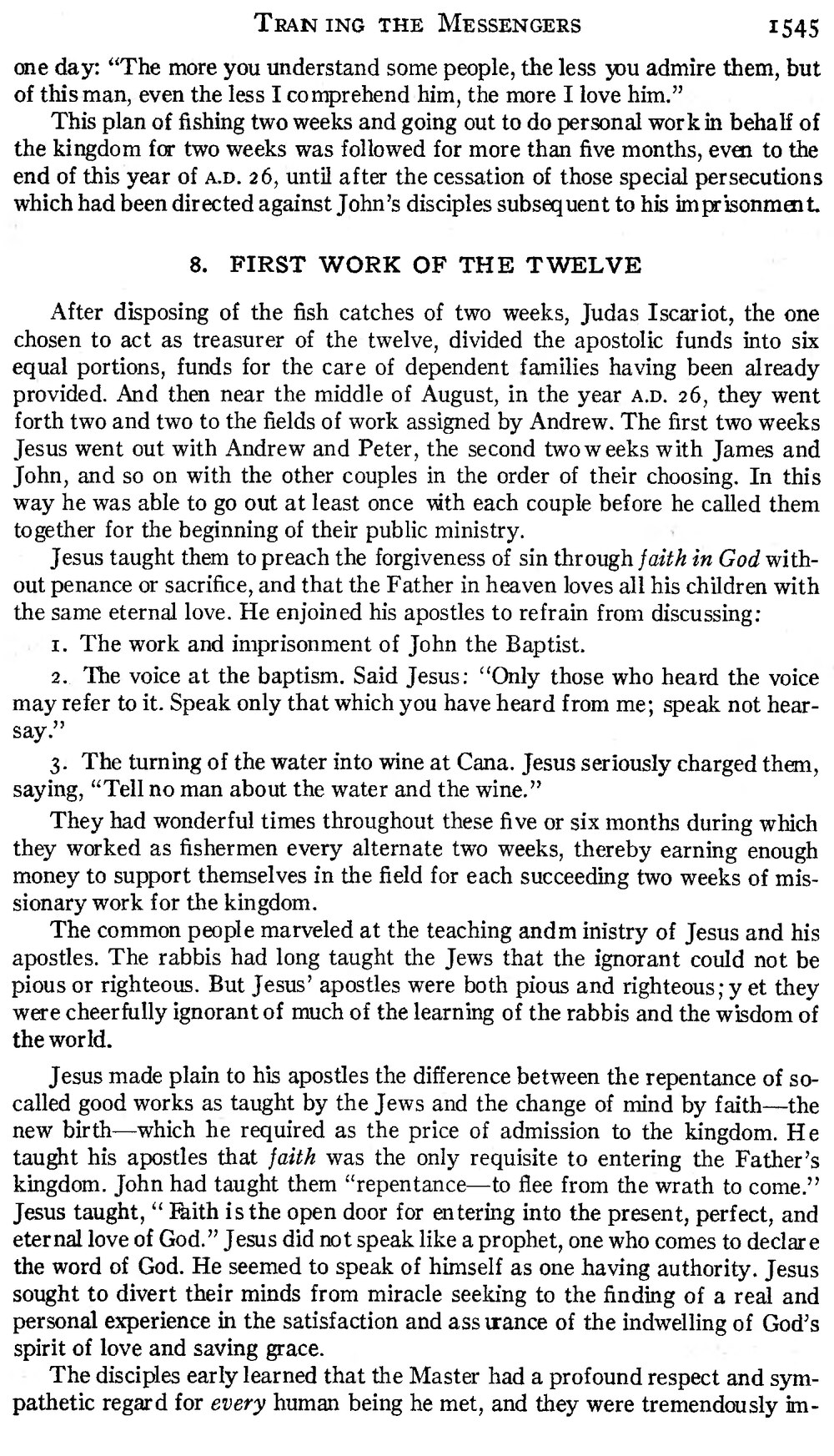one day: "The more you understand some people, the less you admire them, but of this man, even the less I comprehend him, the more I love him."
This plan of fishing two weeks and going out to do personal work in behalf of the kingdom for two weeks was followed for more than five months, even to the end of this year of A.D. 26, until after the cessation of those special persecutions which had been directed against John's disciples subsequent to his imprisonment.
After disposing of the fish catches of two weeks, Judas Iscariot, the one chosen to act as treasurer of the twelve, divided the apostolic funds into six equal portions, funds for the care of dependent families having been already provided. And then near the middle of August, in the year A.D. 26, they went forth two and two to the fields of work assigned by Andrew. The first two weeks Jesus went out with Andrew and Peter, the second two weeks with James and John, and so on with the other couples in the order of their choosing. In this way he was able to go out at least once with each couple before he called them together for the beginning of their public ministry.
Jesus taught them to preach the forgiveness of sin through faith in God without penance or sacrifice, and that the Father in heaven loves all his children with the same eternal love. He enjoined his apostles to refrain from discussing:
- The work and imprisonment of John the Baptist.
- The voice at the baptism. Said Jesus: "Only those who heard the voice may refer to it. Speak only that which you have heard from me; speak not hearsay."
- The turning of the water into wine at Cana. Jesus seriously charged them, saying, "Tell no man about the water and the wine."
They had wonderful times throughout these five or six months during which they worked as fishermen every alternate two weeks, thereby earning enough money to support themselves in the field for each succeeding two weeks of missionary work for the kingdom.
The common people marveled at the teaching and ministry of Jesus and his apostles. The rabbis had long taught the Jews that the ignorant could not be pious or righteous. But Jesus' apostles were both pious and righteous; yet they were cheerfully ignorant of much of the learning of the rabbis and the wisdom of the world.
Jesus made plain to his apostles the difference between the repentance of so-called good works as taught by the Jews and the change of mind by faith—the new birth—which he required as the price of admission to the kingdom. He taught his apostles that faith was the only requisite to entering the Father's kingdom. John had taught them "repentance—to flee from the wrath to come."
Jesus taught, "Faith is the open door for entering into the present, perfect, and eternal love of God." Jesus did not speak like a prophet, one who comes to declare the word of God. He seemed to speak of himself as one having authority. Jesus sought to divert their minds from miracle seeking to the finding of a real and personal experience in the satisfaction and assurance of the indwelling of God's spirit of love and saving grace.
The disciples early learned that the Master had a profound respect and sympathetic regard for every human being he met, and they were tremendously im-

